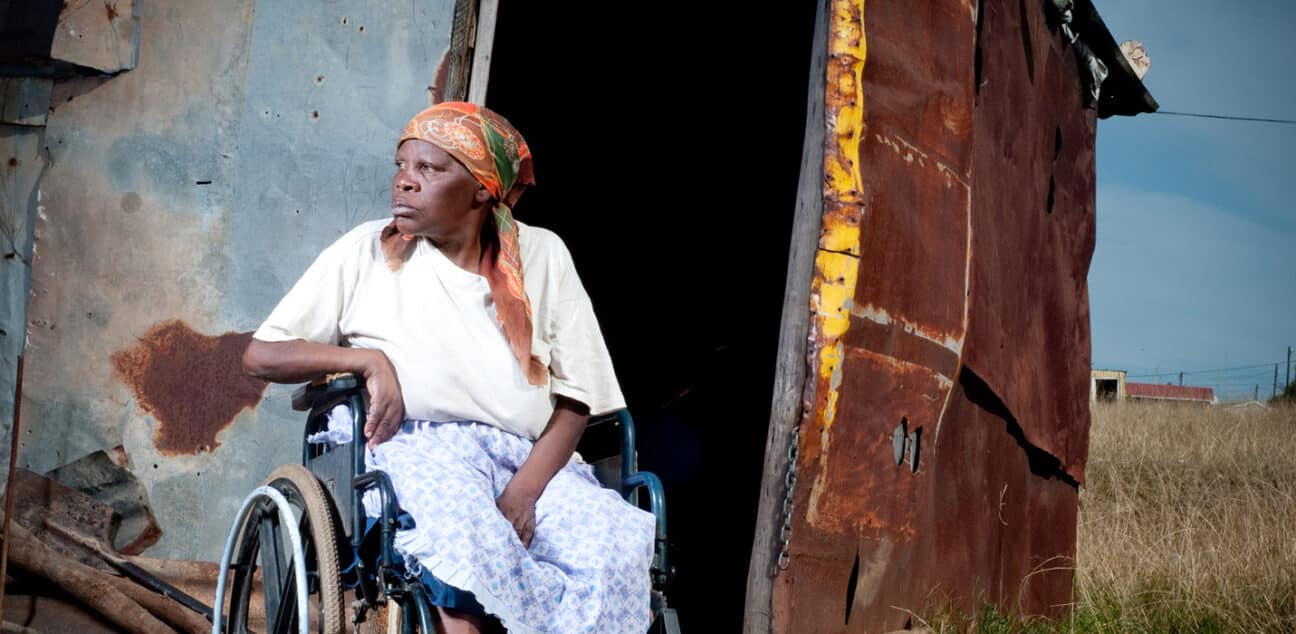Open letter calling FCDO to continue the global leadership on disability inclusion
Type
LetterTo the Rt Hon Dominic Raab MP, Secretary of State for the Foreign Commonwealth & Development Office,
Dear Secretary of State,
We are writing to call on you to pick up the baton on global disability inclusion and keep the promise, made two years ago, to people with disabilities. When the UK co-hosted the landmark Global Disability Summit, the Government assured people with disabilities around the world that leaders would step up international action. Today, with COVID-19 threatening to hit those with disabilities hardest, the newly created Foreign, Commonwealth and Development Office must quickly step into this leadership role to honour that commitment.
We are leaders of organisations working on disability in over 60 countries that together support millions of people with disabilities who are so often airbrushed out of the picture. 80% of the world’s one billion people living with disabilities are in developing countries. In conflict-affected Syria, a staggering 27% of the population now lives with a disability – including almost every single person over the age of 65. COVID-19 is a virus that exploits inequality, and people with disabilities are disproportionately affected, more likely to face discrimination and stigma, and more likely to be excluded from information and health care. At the same time, around 13% of the global population has a mental health condition.
Take the case of Abdul Baqi. When Abdul fled Afghanistan in 1986, he was injured by a landmine explosion and lost his leg. Today, aged 50, he still lives in Jalala Afghan Mardan refugee camp with his wife and family. When COVID-19 broke out, he was forced to close his shop in the camp. “I am not afraid that my children will catch COVID-19”, he told us. “My worry is that I won’t be able to feed them”.
In recent years, the UK has done much to champion international action on disability and mental health and the Department for International Development (DfID) has made significant progress towards implementing its commitments. In addition to co-hosting the Global Disability Summit, it launched an ambitious new Disability Inclusion Strategy. In its own programming, DfID made huge progress in breaking down data to better understand whether its aid projects were actually reaching those with disabilities. According to DfID’s own data, disability inclusion is now a significant objective for 35% of its aid spending. The UK has also shown global leadership by founding and chairing the influential Global Action on Disability Network and pushing institutions like the UN and World Bank to do better.
You have spoken about how Global Britain should be a “force for good”. The merging of an independent DfID into the FCO provides an opportunity to put this into action. But it will not be easy: not least with the ?2.9 billion cuts to the 2020 aid budget announced over the summer. If your new Department is to make the most of the opportunity of the merger, the political commitment on disability and mental health must now be backed up with the hard legwork of expert programming, transparent reporting, and data analysis.
What the new Foreign, Commonwealth and Development Office does next matters enormously. There is much to learn from how DFID spent the UK’s aid budget and progress to build on. The FCDO can adopt its Disability Inclusion Strategy, retain its best disability experts, and maintain scrutiny and transparency over how aid is spent. You could go further too: by placing disability inclusion at the heart of foreign policy and the pursuit of peace, the new FCDO could help reduce conflicts, promote human rights, and use diplomatic efforts to encourage other governments to ratify the Convention on the Rights of Persons with Disabilities. And we are ready to work with you on this.
Your newly created department now has a chance to take up the global leadership role by placing disability inclusion at the heart of the UK’s international COVID-19 response and aid programmes. Those who, like Abdul, live with disability in some of the hardest settings around the world simply cannot afford for the UK to surrender its leadership role now – just when they need it most. They count on you to ensure those promises are kept, and so do we.
Yours sincerely,
CEOs of the Bond Disability and Development Group and partners:
- Aleema Shivji, Chief Executive, Humanity & Inclusion UK
- Andrew Betts, Director, Advantage Africa
- Annabel Harris, CEO, Network for Africa
- Dominic Haslam, Deputy CEO, Sightsavers
- Isabelle Cardinal and Chris Watts, Acting Co-Managing Directors, Social Development Direct
- Jill Healey, Executive Director, ChildHope UK
- Jimmy Innes, CEO, ADD International Joanna Clark, Director, Deaf Child Worldwide
- Karl Hankinson, CEO, Able Child Africa
- Katie Fowler and Anna-mai Andrews, Co-CEO, Chance for Childhood
- Kirsty Smith, CEO, CBM UK
- Lewis Temple, Chief Executive, BRAC UK
- Martin Drewry, CEO, Health Poverty Action
- Philip Goodwin, Chief Executive, VSO
- Richard Kramer, CEO, Sense and Sense International
- Sarah Ingleby, Chief Executive, Tools for Self Reliance
- Tiziana Oliva, Executive Director, Leonard Cheshire

